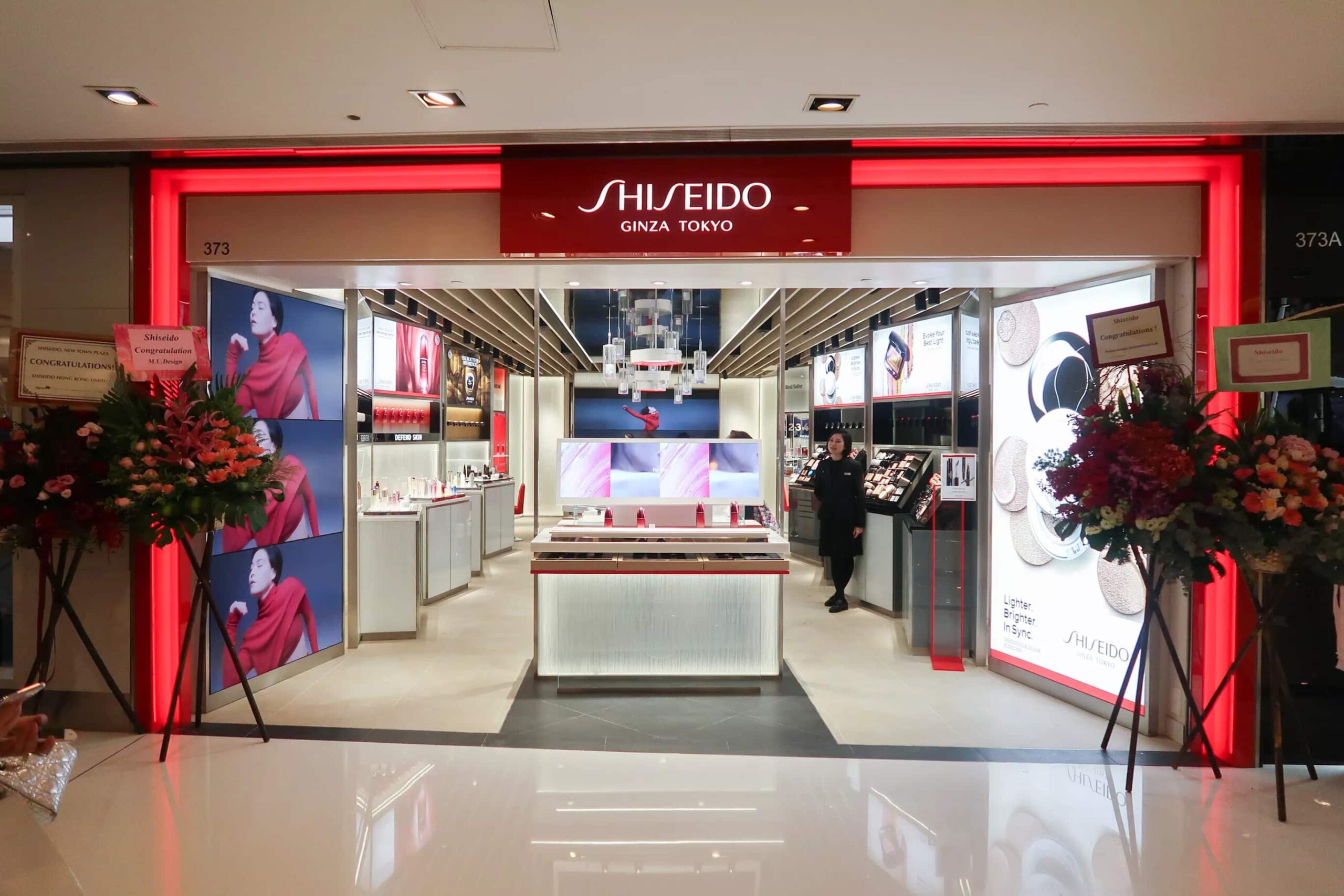[vc_row njt-role=”people-in-the-roles” njt-role-user-roles=”administrator,editor,author,armember”][vc_column][vc_column_text]
A consumer boycott has been sparked off in China by a proposed spill of water from the Fukushima nuclear power plant. This movement threatens Japanese cosmetics manufacturers, whose sales in the Middle Kingdom could be affected. Analysts believe, however, that this is only a passing trend.
Japanese cosmetics manufacturers are threatened by a consumer boycott in China due to a proposed water discharge from the Fukushima nuclear power plant. A viral campaign began in early June when unproven allegations about the dangers of water discharges from the plant were circulated on Chinese social networks.
Since then, Chinese Internet users have been compiling lists of Japanese brands questioning their safety. A hashtag on the subject generated some 300 million views on Weibo, the Chinese equivalent of Twitter.
The major cosmetics company Shiseido suffered its biggest weekly decline in almost 10 months, falling 6.8% on the Tokyo Stock Exchange. Shares in other cosmetics manufacturers such as Pola Orbis Holdings and Kose also fell by over 3%.
This boycott could be a “trigger for Chinese consumers to turn away from high-end Japanese cosmetics brands”, says Wakako Sato, an analyst at Mitsubishi UFJ Morgan Stanley Securities. “Weak local consumption is a more fundamental reason for the underperformance of Japanese brands.”
The Fukushima case
Discharges from the Fukushima power plant, which suffered a meltdown after a major earthquake in 2011, have often drawn the ire of Japan’s neighbors. China, in particular, has regularly condemned the plan to discharge water into the ocean. Japan claims that the water used to cool fuel and debris at the disaster site is safe. A treatment process would eliminate most of its radioactive elements before it is diluted and discharged into the sea.
However, international brands have learned not to underestimate the impact of social media campaigns in the world’s second-largest economy. Shiseido and Procter & Gamble, which owns the famous Japanese beauty brand SK-II, were quick to omit statements in China, reassuring locals about the safety of their products. According to a P&G spokesperson, no radiation risk had been identified at the SK-II manufacturing plant, and the concerns raised online were based on “erroneous information”.
SK-II recently lost its place in the top 5 to a local brand in a major online auction held annually in China. Some Internet users are also pushing for more companies to be boycotted, with recent lists including baby products, food brands and even Chinese brands using Japanese raw materials.
Fad
However, some believe that this situation is temporary.
According to Jefferies analyst Mitsuko Miyasako, the impact on Japanese cosmetics companies is likely to be minor, and a government ban is in her view unlikely.
“We do not expect the boycott movement to become a major force, and we do not believe it will have a negative impact on the performance of cosmetics companies”, she writes in a note dated Friday June 23.
Jeanie Chen, senior analyst at Morningstar Research, also believes that the impact on Japanese brands will be insignificant.
Read also >Belgian MPs call for a European boycott of Russian diamonds
Featured photo : © Creative Commons [/vc_column_text][/vc_column][/vc_row][vc_row njt-role=”not-logged-in”][vc_column][vc_column_text]
A consumer boycott has been sparked off in China by a proposed spill of water from the Fukushima nuclear power plant. This movement threatens Japanese cosmetics manufacturers, whose sales in the Middle Kingdom could be affected. Analysts believe, however, that this is only a passing trend.
Japanese cosmetics manufacturers are threatened by a consumer boycott in China due to a proposed water discharge from the Fukushima nuclear power plant. A viral campaign began in early June when unproven allegations about the dangers of water discharges from the plant were circulated on Chinese social networks.
Since then, Chinese Internet users have been compiling lists of Japanese brands questioning their safety. A hashtag on the subject generated some 300 million views on Weibo, the Chinese equivalent of Twitter.
The major cosmetics company Shiseido suffered its biggest weekly decline in almost 10 months, falling 6.8% on the Tokyo Stock Exchange. Shares in other cosmetics manufacturers such as Pola Orbis Holdings and Kose also fell by over 3%.
This boycott could be a “trigger for Chinese consumers to turn away from high-end Japanese cosmetics brands”, says Wakako Sato, an analyst at Mitsubishi UFJ Morgan Stanley Securities. “Weak local consumption is a more fundamental reason for the underperformance of Japanese brands.”
The Fukushima case
Discharges from the Fukushima power plant, which suffered a meltdown after a major earthquake in 2011, have often drawn the ire of Japan’s neighbors. China, in particular, has regularly condemned the plan to discharge water into the ocean. Japan claims that the water used to cool fuel and debris at the disaster site is safe. A treatment process would eliminate most of its radioactive elements before it is diluted and discharged into the sea.
[…][/vc_column_text][vc_cta h2=”This article is reserved for subscribers.” h2_font_container=”tag:h2|font_size:16|text_align:left” h2_use_theme_fonts=”yes” h4=”Subscribe now !” h4_font_container=”tag:h2|font_size:32|text_align:left|line_height:bas” h4_use_theme_fonts=”yes” txt_align=”center” color=”black” add_button=”right” btn_title=”I SUBSCRIBE !” btn_color=”danger” btn_size=”lg” btn_align=”center” use_custom_fonts_h2=”true” use_custom_fonts_h4=”true” btn_button_block=”true” btn_custom_onclick=”true” btn_link=”url:https%3A%2F%2Fluxus-plus.com%2Fen%2Fsubscriptions-and-newsletter-special-offer-valid-until-september-30-2020-2-2%2F”]Get unlimited access to all articles and live a new reading experience, preview contents, exclusive newsletters…
Already have an account ? Please log in.
[/vc_cta][vc_column_text]Featured photo : © Creative Commons[/vc_column_text][/vc_column][/vc_row][vc_row njt-role=”people-in-the-roles” njt-role-user-roles=”subscriber,customer”][vc_column][vc_column_text]
A consumer boycott has been sparked off in China by a proposed spill of water from the Fukushima nuclear power plant. This movement threatens Japanese cosmetics manufacturers, whose sales in the Middle Kingdom could be affected. Analysts believe, however, that this is only a passing trend.
Japanese cosmetics manufacturers are threatened by a consumer boycott in China due to a proposed water discharge from the Fukushima nuclear power plant. A viral campaign began in early June when unproven allegations about the dangers of water discharges from the plant were circulated on Chinese social networks.
Since then, Chinese Internet users have been compiling lists of Japanese brands questioning their safety. A hashtag on the subject generated some 300 million views on Weibo, the Chinese equivalent of Twitter.
The major cosmetics company Shiseido suffered its biggest weekly decline in almost 10 months, falling 6.8% on the Tokyo Stock Exchange. Shares in other cosmetics manufacturers such as Pola Orbis Holdings and Kose also fell by over 3%.
This boycott could be a “trigger for Chinese consumers to turn away from high-end Japanese cosmetics brands”, says Wakako Sato, an analyst at Mitsubishi UFJ Morgan Stanley Securities. “Weak local consumption is a more fundamental reason for the underperformance of Japanese brands.”
The Fukushima case
Discharges from the Fukushima power plant, which suffered a meltdown after a major earthquake in 2011, have often drawn the ire of Japan’s neighbors. China, in particular, has regularly condemned the plan to discharge water into the ocean. Japan claims that the water used to cool fuel and debris at the disaster site is safe. A treatment process would eliminate most of its radioactive elements before it is diluted and discharged into the sea.
[…][/vc_column_text][vc_cta h2=”This article is reserved for subscribers.” h2_font_container=”tag:h2|font_size:16|text_align:left” h2_use_theme_fonts=”yes” h4=”Subscribe now !” h4_font_container=”tag:h2|font_size:32|text_align:left|line_height:bas” h4_use_theme_fonts=”yes” txt_align=”center” color=”black” add_button=”right” btn_title=”I SUBSCRIBE !” btn_color=”danger” btn_size=”lg” btn_align=”center” use_custom_fonts_h2=”true” use_custom_fonts_h4=”true” btn_button_block=”true” btn_custom_onclick=”true” btn_link=”url:https%3A%2F%2Fluxus-plus.com%2Fen%2Fsubscriptions-and-newsletter-special-offer-valid-until-september-30-2020-2-2%2F”]Get unlimited access to all articles and live a new reading experience, preview contents, exclusive newsletters…
Already have an account ? Please log in.
[/vc_cta][vc_column_text]Featured photo : © Creative Commons[/vc_column_text][/vc_column][/vc_row]










